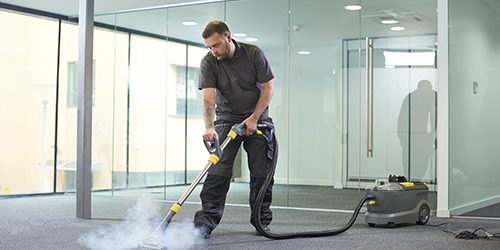5 key tips for successfully going back to work after holidays
The end of a holiday is often coupled with a period of blues and stress for many employees. After a few weeks of rest and relaxation, coming back to work can seem a daunting task. However, with good preparation and a positive attitude, it’s possible to make this transition smoother and more enjoyable.
The implications of a successful return to work
Returning to work after a leave isn’t just a personal challenge, it’s also a key issue for the company. The way employees experience their return to the office can have a significant impact on their motivation, productivity, and consequently the overall performance of the organisation.
Employees may feel apprehensive about resuming their professional duties. After being away, the contrast between holiday relaxation and the intensive pace of work can lead to stress and affect their well-being at work. They may also fear finding an inbox full of unread emails, a stack of outstanding folders, or needing to catch up on ongoing projects.
It is therefore in the best interest of the company to ensure a smooth return to work for its employees. A well-managed return can help maintain a high level of engagement and satisfaction amongst teams, thus fostering cohesion and collective performance. Here are some tips to help your team members succeed in going back to work after a holiday.
Tip 1: Prepare before going back
One of the keys to a successful return to work after a holiday is to prepare in advance. This preparation can take several forms.
First, it is advised to get back to a regular sleep pattern a few days before returning to work. If the employee has been staying up late during the holiday, the sudden change in routine can be difficult. By gradually adjusting their biological clock, they will be more energetic and alert on the first day back to work.
It’s also about mentally preparing to return to work. If needed, one can use relaxation or meditation techniques to manage the stress and anxiety associated with going back to work. It can also be helpful to set motivational objectives for the return.
By preparing before returning to work, the employee lays the foundation for a smooth and productive first day back.
Tip 2: Arrange the workspace
The environment in which an employee works has a significant impact on their motivation and productivity. Upon returning to work after a holiday, they should take the time to properly arrange their desk.
To do this, they can begin with a cleaning and tidying session. The employee needs to get rid of any unnecessary clutter, organise their files and office supplies. A clean and well-organised workspace can help reduce stress and improve concentration.
Next, the workspace should be made more pleasant and stimulating by adding office furnishings: plants, photos, artwork, etc. The employee should also adjust the lighting or ergonomics of their workspace for optimal comfort.
Finally, the workstation must be adapted to the needs and daily tasks of the person occupying it. For example, if they read a lot of documents, quality lighting is essential. If they spend a lot of time on the phone or on video calls, a comfortable headset is a necessary investment.
Creating a workspace that pleases its user contributes to a successful and productive return to work after holidays.
Tip 3: Adopt a balanced work rhythm
After a period of rest and relaxation during a holiday, it can be difficult to get back to the intense rhythm of work.
It is therefore recommended to start the workday gently, allowing time to acclimate. Instead of diving directly into the most complex tasks, it is rather about starting with lighter tasks to ease back into work.
Scheduling regular breaks is also beneficial: these rest periods allow the employee to recharge and prevent burnout. Whether it’s a coffee break, a short walk, or a few minutes of relaxation, these breaks are essential to maintain energy and concentration throughout the day.
A balanced work rhythm also depends on the time spent outside the company premises – it is therefore advised not to stay up late at night, especially during the first few days back at work. By preserving their personal time to relax and recharge, employees facilitate their return to work after a holiday. Respecting the separation between work time and personal time promotes well-being and productivity to combat the back-to-work blues and make the return a positive experience.
Tip 4: Maintain open communication
Communication is a key element for a successful return to work after holidays.
Employees should not hesitate to share their feelings and worries with their peers or their manager. If they’re feeling overwhelmed or stressed, it’s important they make this known in order to receive the necessary support.
Managers, on the other hand, must ensure to clearly communicate the expectations and objectives for the post-vacation period. This is also the perfect moment to reaffirm the team’s vision and mission, and to give everyone a crystal clear picture of what they’re supposed to achieve.
Encouraging employees to share their holiday experiences can help to strengthen team spirit and create a positive atmosphere within the office. Informal exchanges over coffee or during a team meeting can help everyone feel more connected and engaged.
Maintaining open and positive communication contributes to a more pleasant and productive work environment when going back to work after holiday.
Tip 5: Taking care of physical and mental health
Returning to work after holidays can be a source of stress and anxiety. Therefore, it’s essential to take care of one’s physical and mental health during this transition period.
On a physical level, it’s recommended to incorporate regular physical activity into your routine. Whether it’s a workout session, a walk during lunch break, or simply taking the stairs instead of the lift, every effort counts. Regular physical activity helps to reduce stress and increase energy levels.
On a mental level, employees can practise relaxation techniques such as meditation, deep breathing, or yoga to help manage stress. It can also be beneficial to take a few minutes each day to focus on the positive aspects of your work and life in general.
Finally, the importance of good sleep and a balanced diet should not be overlooked. They play a key role in maintaining energy and concentration levels throughout the day.
Going back to work after a holiday can be challenging, but with the right preparation and a positive mindset, it can be turned into a rewarding experience.
For more tips on improving well-being at work, download our “Well-working” white paper.






